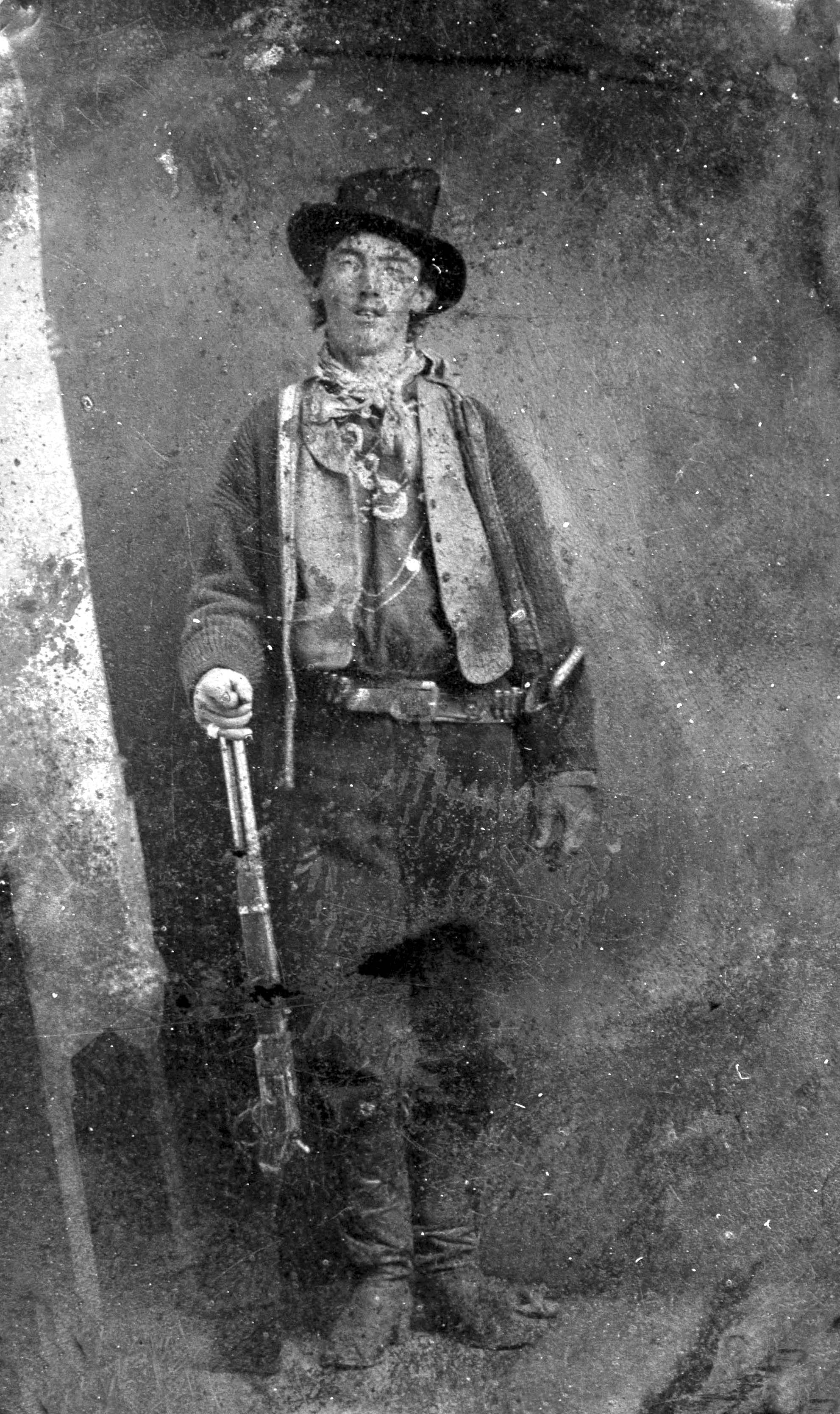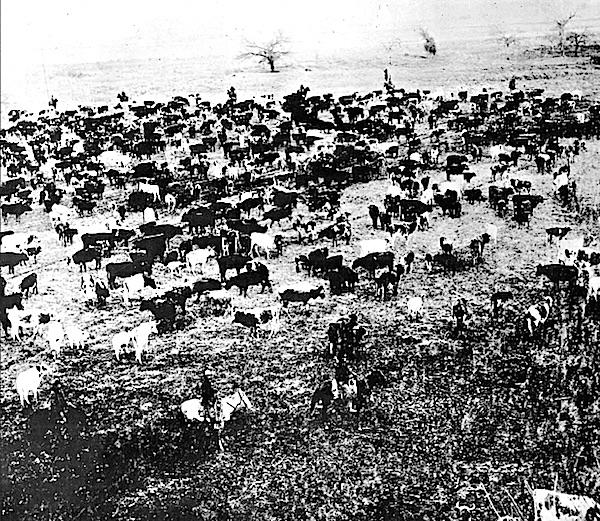I suspect they do this because they feel like the real Wild West is somehow too "boring". That's bullshit, but what's more bullshit is how they try to cover that up by claiming that they're altering the timeline to "make the Wild West period last longer". And worse still, pretending that it all "makes sense".
Now, if all you want is to run a game in Fictional Wild-West Themepark Land, more power to you. Just don't pretend your alt-history meant to make the west last forever "makes sense". Shit, just don't even try to explain it, just admit that you're running a game with no historical coherence and be done with it.
There are so many ways that every "Alternate History Wild-West" timeline I've ever seen doesn't make sense (especially the ones that find ways for the CSA to keep existing while somehow abolishing slavery and even racism at the same time: I'm looking at you, Deadlands). But fundamentally, whatever way you do it, the thing that makes the most nonsense is the idea that you can significantly expand the Wild-west period and have it still be the genre it's supposed to be.
A key historical theme of the wild west was that the cowboys and the lawmen and the ne'er-do-wells moved around so much because they had to keep going further west to keep escaping the encroaching civilization.
The Indians not getting wiped out and having their own nations able to stand toe-to-toe against the white man is great for a PC alt-history fantasy of the late '90s or SJW revenge-porn of the 2010s, but that's also not the Wild West. A huge part of the Wild West was the tragedy of the Indian Wars and the horror that was for all concerned. If that goes a different way, it changes everything.
Having the civil war still going on in the 1870s or 1880s, or having the CSA win the war and the two states now have an uneasy stalemate doesn't "make the Wild West more interesting", it means the Wild West could never have happened. Because the Wild West, at least the period most of us think of, only happened as a direct result of the war ending, and with a Union victory.
(Jesse James only existed the way he did because of the South losing the war, but he's only the most obvious example)
A surviving Confederacy destroys the fundamental nature of Wild West society. The west was full of people who retired haunted from the Union Army, or fled the defeated South seeking their fortune and holding grudges. The fights between Republicans (northerners, pro-railway, pro-industrial, dressed in black, generally lawmen) and Democrats (southerners, anti-industry, anti-progress, pro-taverns-and-shootouts, dressed in colorful combinations, generally outlaws) was a central backdrop of all kinds of conflicts that happened in the Wild West. The OK Corral, for example, was a direct result of that (the Earps were Republicans, the Clantons were Democrats).
You have a civil war still going on, or a cold war, you're not going to have the wild lawless west. You're going to have a totally different setting. No Tombstone, no Dodge City, probably no Deadwood, no Las Vegas, no Fort Worth, no Dog Kelley or Earp Brothers or Masterson brothers or Doc Holliday, probably no Billy the Kid, all kinds of stuff would have been utterly impossible unless you just wave a gigantic magic wand of "I think it would be really cool if the CSA never fell but everything is somehow magically the same anyways, except maybe they're all politically correct and have black confederate colonels and everyone forgot about racism somehow".
And if you think "the Wild West setting will be more awesome if it lasts longer" then you frankly just plain don't understand the Wild West, either historically or as a genre. The Wild West had to be something that happened fast. That was part of the deal: even if they didn't consciously realize just how fast, everyone knew that it was a moment that was quickly going to be lost forever. The real Wild West as we truly think of it was ridiculously short; it went from around 1870-1885. And the real real wild west, the part that most of the most important stories and movies and whatnot are based on was even shorter than that, from 1876-1882.
Custer's last stand (hell almost ALL the Indian wars), Wyatt Earp in Dodge city, the great cattle drives, the lawless Deadwood, the death of Wild Bill Hickok, Calamity Jane, the end of the buffalo trade, Bat Masterson, Doc Holliday, the Lincoln County War and Billy the Kid, the rise of the Cowboys, the Las Vegas gang, Tombstone and the Gunfight of the OK Corral, Wyatt Earp's revenge ride, the death of Billy the Kid, and the death of Jesse James all happened within a six year period from 1876-82.
The Wild West was already disappearing practically the moment it 'started'.
And the people who were part of the Wild West, who wanted that way of life, were literally running from place to place, further west and further south and north to the ever-narrowing fringes of civilization because they could literally see it vanishing before their eyes. That's why Wyatt Earp started out in Illinois when the Wild West both began and started to disappear, and within two years he was in Kansas, and within less than 5 years after that he was off to New Mexico, and a year after that he was in Arizona (in his own words: "In 1879, Dodge (Kansas) was beginning to lose much of the snap which had given it a charm to men of reckless blood, and I decided to move to Tombstone (Arizona), which was just building up a reputation" - He was in Dodge less than four years total, and in Tombstone less than two). After Arizona he was in Idaho, San Diego and the Klondike but by then it was just a shadow, there was nothing really of the Wild West left.
If you don't capture that in the setting, you're not doing the Wild West. You're doing some kind of Buffalo Bill wild-west show, and then you might as well set it in FakeName County, Southwestern America because what you're creating is a pantomime.
Which can be a lot of fun, too, even if I don't think it's as fun as seeing the real history unfold. But just don't pretend you're doing something other than a pantomime.
RPGPundit
Currently Smoking: Neerup Egg + Image Virginia






What's that last picture? It screams 'Vampire the Masquerade' to me...
ReplyDeleteThat's an artistic rendition of Doc Holliday (based on Val Kilmer's portrayal of him in Tombstone, the best western movie ever made).
Delete"Tombstone, the best western movie ever made"...heh hee ha ha is that part of your standup act?
DeleteAnd come to think of it: if CSA did not fall, John Carter would probably never have travelled to Barsoom!
ReplyDeleteSounds like you're describing Åskfågeln's Western (Swedish, soon to be English) rpg.
ReplyDeleteI have to admit I'm not familiar with that at all.
DeleteNo time like the present - we are at Kickstarter now (Western the roleplaying game) and we can just agree with your rant. The real wild west is such a short time and staying true to the history and era gives you more than enough drama, intrigue and colorful conflicts to last you a lifetime of gaming. If you have any thoughts or questions to us, please feel free to contact us directly at fenix@speltidningen.se
DeleteTove & Anders, the game designers behind Western
Well, nice. When you complete it, feel free to send me a review copy.
DeleteNot even a 'please'? Damn. :)
DeleteWell, people who send me reviews get more sales and publicity. I have a 100% record of producing a thorough review of any product sent my way.
DeleteI don't have to say please. On the contrary, I constantly have a waiting list of products. My abilities as a reviewer are one of the reasons I was hired by WoTC to work on the D&D 5e project.
A very interesting read!
ReplyDeleteAlso note that many American historical phenomena related to the Old West, such as the Oregon Trail and the Pony Express, were rendered obsolete by the rapidly advancing modern technology - railroad and telegraph, respectively - in the 1860-1880 period.
Anyone who thinks the West was boring (1) knows nothing about it, (2) has never been to any of the sites, or (3) is just trying to be cool by disdaining something.
ReplyDelete